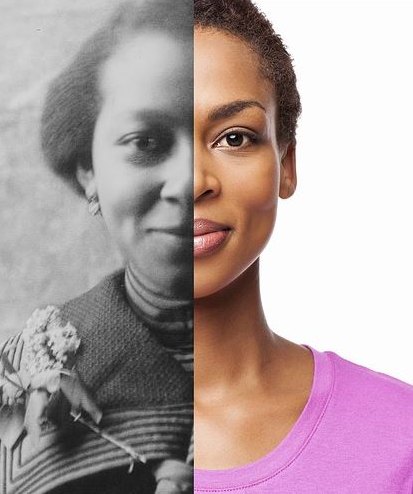 Black History Month celebrates the achievements made by black Americans and recognizes the hardships they have overcome.
Black History Month celebrates the achievements made by black Americans and recognizes the hardships they have overcome.
The annual celebration began half a century after the abolishment of slavery in the United States, according to history.com. Historian Carter G. Woodson and minister Jesse E. Moorland founded the Association for the Study of Negro Life and History (ASNLH), which focused on the researching events in black history and promoting achievements made by important black Americans.
The organization later decided to create and sponsor a week-long celebration for black history called Negro History Week and chose to celebrate it on the week of Abraham Lincoln’s and Frederick Douglass’s birthdays. The event later evolved into Black History Month when President Gerald R. Ford recognized it in 1976. Ford called upon the public to use the month to “seize the opportunity to honor the too-often neglected accomplishments of black Americans in every area of endeavor throughout our history.”
Miracle Lewis, a junior theatre major at Texas Woman’s University, believes the month-long celebration is important to her heritage.
“Black History Month is important to me because it tells the truth about what happened in this nation,” Lewis said. “We call it the land of the free and the home of the brave and how that was not true.”
The purpose of Black History Month is to remind ourselves about slavery and the discrimination that occurred for so many years, Lewis said.
“I really think black history brings a lot of things we forget and hide but need to brought to light,” Lewis said. “That’s essentially what black history means; it’s not just about slavery even though that was a huge part, but black history also shows the reason why we have a testimony today.”
Ambrosia Hagler, senior theatre major at Trinity Valley Community College, said that people shouldn’t focus on the fact that other ethnic groups don’t have a month of celebration.
“I posted a quote on Facebook about Black History Month and how I’m glad we get the chance to celebrate it and someone said ‘Why do black people get a whole month?,’” Hagler said. “To me, Black History Month is a time where everyone stops and remembers the strong and brave black people that lost their lives so I can have the freedom I have today.”
It’s important to pay tribute to the men and women who fought for the freedom to celebrate our history today, Hagler said.
“It’s important to remember how I got here and I take pride in that,” Hagler said.
Tori Donald, a junior theatre major at Texas A&M Commerce, believes it’s important to be prideful of the hard work many black Americans had to go through.
“African Americans are making strides by creating inventive and creating new endeavors for our future,” Donald said.
 Lewis hopes more Americans will use Black History Month to focus on diversity and experience different cultures in America.
Lewis hopes more Americans will use Black History Month to focus on diversity and experience different cultures in America.
“Am I happy with the diversity in today’s time?” Lewis said. “I will say this: I do think it could be even better, but I am happy that it’s not what it used to be.”
Trezjon Cothran, a senior liberal arts major and vice president of the Black Student Association, agrees with Lewis that diversity is nowhere where it should be.
“Being that blacks were restricted from certain areas and had limited rights in the past, this excites me that those issues are no longer an issue today,” Cothran wrote in an email. “However, the diversity in America is not where it should be. Many college and university campuses throughout the nation are still predominately one race, with a small portion of a variety of other races.”
Cothran believes the best way to increase diversity in America is by embracing every aspect of it.
“Often times, black history is pushed aside or glossed over because it can be quite uncomfortable to discuss the pain and suffering of our people,” Cothran wrote. “By celebrating black history, we acknowledge the mistakes, sacrifices and the progress over time.”









![Pippin, played by Hunter Heart, leads a musical number in the second act of the musical. [Photo courtesy Kris Ikejiri]](https://therambler.org/wp-content/uploads/2025/04/Pippin-Review-1200x800.jpg)
![Harriet and Warren, played by Trinity Chenault and Trent Cole, embrace in a hug [Photo courtesy Lauren Hunt]](https://therambler.org/wp-content/uploads/2025/02/lettersfromthelibrary_01-1200x800.jpg)
![Samantha Barragan celebrates following victory in a bout. [Photo courtesy Tu Pha]](https://therambler.org/wp-content/uploads/2025/05/20250504_164435000_iOS-834x1200.jpg)





![Hunter Heart (center), the play's lead, rehearses a scene alongside other student actors. [Photo courtesy Jacob Sanchez]](https://therambler.org/wp-content/uploads/2025/04/thumbnail_IMG_8412-1200x816.jpg)
![Student actors rehearse for Pippin, Theatre Wesleyan's upcoming musical. [Photo courtesy Jacob Rivera-Sanchez]](https://therambler.org/wp-content/uploads/2025/04/Pippin-Preview-1200x739.jpg)
![[Photo courtesy Brooklyn Rowe]](https://therambler.org/wp-content/uploads/2025/05/CMYK_Shaiza_4227-1080x1200.jpg)

![Lady Rams softball wraps up weekend against Nelson Lions with a victory [6 – 1]](https://therambler.org/wp-content/uploads/2025/04/Screenshot-2025-04-04-100924-1200x647.png)
















